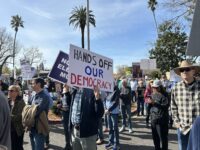
Is the purpose of government to protect the common welfare or protect private property? This question is at the heart of American politics and encapsulates many of the differences between those on the right and those on the left.
Conservatives argue that individual liberty is at the core of American values, and with it the private property that individual liberty sanctions. The role of the government, the conservative argument goes, is to curtail restrictions on liberty and enforce the sanctity of private property. Liberals maintain that both personal liberty and private property should be subordinate to the common good. The role of government, the liberal argument goes, is to guarantee that liberty is equally applied to all and that the use of private property does not infringe upon a broader community interest.
These arguments are fueling debate before the Supreme Court – about vaccine mandates, regulatory agency authority, voting rights, and more. Occasionally, positions about the role of government get reversed, such as in rulings about a women’s right to get an abortion. In that case, arguments are complicated by religious views and the scientific difficulty in defining what constitutes an unborn living being with entitlements.
When this great debate moves down to the local level, it’s most often seen in disputes between neighbors, and the most common dispute is about fences. Fences demarcate property lines and are one of the few structures that are frequently built on the common property line. Accordingly, fences and fence lines often require mutual agreement and cooperation, a willingness to collaborate on decisions acceptable to both parties. When disputes arise, they come before government for adjudication, first to the Planning Commission, then to the City Council; beyond that, disputes end up in the courts; neighbors become enemies. It doesn’t, however, always happen that way.
My neighbor to the west shares a fence with me, and that fence became a positive way of connecting with each other. Old, rotting, and unattractive, the fence might have stood for another five or ten years, but my neighbor Tom approached me with a proposal to replace it: Tom would take down the old fence and rebuild it if I would pay for the materials. His proposal included an estimated cost of materials, and some drawings of the proposed new fence design. I readily accepted his proposal.
Tom’s no spring chicken, and neither am I, but he exuded confidence that the work could be completed over the course of four months, and I felt in no hurry. He proceeded to remove one eight-foot section between posts at a time, saving the boards for potential reuse, describing himself as a penny-pincher. Reusing the old materials appealed to me for environmental reasons.
Over time, we found ourselves working closely together to construct the new fence. He shared some personal history and points of view; he is, in his words, politically to the right of Atilla the Hun. I indicated that politically, I’m his opposite, but our views never interfered with fence building. I’d measure, and he’d use his chop saw while I held up my end of the board. We’d both swing a hammer.
We joked, joshed, and sweated our way to a neighborly friendship that was built alongside that fence on our common property line. In this way, the summer proceeded and the fence completed. Good neighbors make good fences.









My neighbor and I built our houses in Livonia, Michigan in 1988. He and his wife are Republicans and conservative. They just moved into assisted living. He would bring over his generator when ever our electric power went out so we could continue to use our water pumps to keep our basements from flooding. He had an air pump which he used to put air into bicycle tires. He could fix anything. He was always ready to help. I am more of a progressive Democrat. He listened to right wing talk radio outside during the summer. It was loud because he was hard of hearing. We really miss him and his wife.